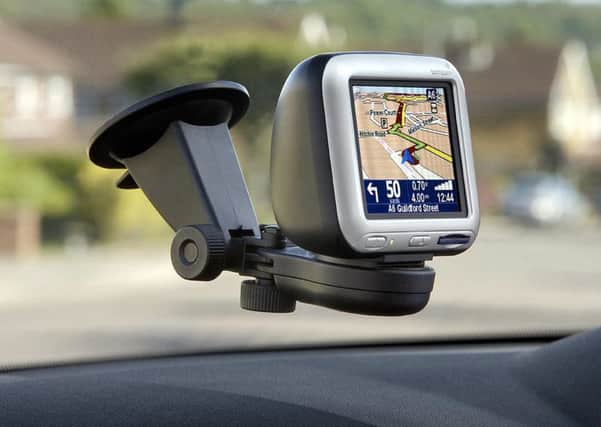Now it's official: We're lost without our satnavs


Describing navigation as a “use-it-or-lose-it” skill, satellite communication consultant Roger McKinlay, former president of the Royal Institute of Navigation, warned in the journal Nature: “If we do not cherish them, our natural navigation skills will deteriorate as we rely ever more on smart devices.”
He believes the world is losing its way due to over-reliance on navigation aids and argues navigation and map reading should be on the school curriculum.
Advertisement
Hide AdAdvertisement
Hide AdMr McKinlay, who is based in Surrey, said navigation had “invaded our dreams of the future” with predictions of driverless cars and swarms of drones delivering goods to people’s homes.
But he doubted such visions would ever become a reality given the fallibility of technology.
“Satellite navigation is unreliable because it does not work well indoors or in built-up areas,” he pointed out. In a crowded or closed environment, signals could “bounce around” and give false information.
The way innate navigation skills were eroded by technology had been demonstrated by simulator studies, said Mr McKinlay.
Advertisement
Hide AdAdvertisement
Hide AdHe wrote: “Drivers in a simulator who follow satellite navigation instructions find it more difficult to work out where they have been than those who use maps. Instructed drivers also fail to notice that they have been led past the same point twice.
“Mountain rescue teams are tired of searching for people with drained smart phone batteries, no sense of direction and no paper map.”
With 80 per cent of the world’s adult population likely to own a smartphone by 2020, access to satellite navigation was “ubiquitous”.
By 2020, 20 orbiters from the European satellite navigation system Galileo would compliment the US Global Positioning System (GPS) and Russian GLONASS network. China had just launched the 21st satellite in its BeiDou system.
Advertisement
Hide AdAdvertisement
Hide AdHowever, navigation is about “more than knowing your position”, Mr McKinlay stressed.
“Newspapers regularly pick up ‘satnav’ disaster stories - such as a lorry bound for the Mediterranean that arrived at Gibraltar Point near Skegness in the United Kingdom,” he said. “A sense of direction, a sense of scale and a map are essential.”
He believes two “bad habits” need to be broken - that we need to recognise that navigation tools do not come for free, and that we must make more use of our “innate” capabilities.
“Machines know where they are, not the best way to get to a destination,” he said. “It might be more reliable to employ a human driver than to program an autonomous car to avert crashes.”